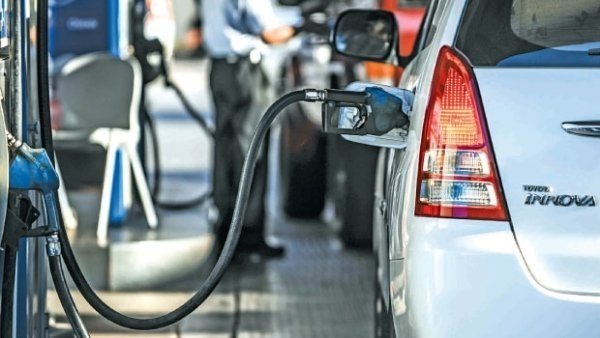
Muscat: Hundreds of teams have been created to ensure the public is not abused due to the monthly fuel price changes, consumer chiefs have revealed.
Umar Faisal Al Jahdamy, deputy director of Public Authority for Consumer Protection (PACP), told the Times of Oman that more than 200 teams had been set up to monitor prices at the pumps.
The move comes as the PACP released details of the conviction of two forecourt staff for ‘deceptive behaviour’ after they sent a customer away and claimed there was no fuel the day before prices were expected to rise.
Read here: Two fuel station workers arrested for cheating customer in Oman
It also coincided with today’s new fuel price change for Oman’s drivers in June, which this month dropped in line with global oil prices. M95 fell to 191 baisas, compared with 199 baisas a litre, while M91 fell to 180 baisas per litre from 186 baisas. Diesel prices also dropped below 200 baisas a litre for the first time since January to 197 from 204 baisas a litre in May.
Also Read: Fuel prices for June announced in Oman
PACP’s Al Jahdamy said, “They [the teams] keep an eye on the petrol pumps on whether they are changing the price of fuel. Citizens and residents can call our call centre at 80079009 to report any violation.”
On Wednesday, the PACP announced that two expats had been convicted, imprisoned and fined for not providing fuel to a consumer the day before prices were scheduled to increase.
The consumer had sent a complaint to PACP regarding a filling station in Nizwa. The individual had gone to the station on the last day of the calendar month, and was told that there was no fuel available.
However, when he went on the next day, which coincided with the beginning of the new calendar month and the new fuel prices, he saw that fuel was available again.
Officials concluded that the workers were attempting to take advantage of the financial change between the two days, and turned away a customer to avoid a sale at the previous month’s lower fuel price. After the consumer sent in his complaint, the PACP visited the station to check availability of fuel, and noted that there was large reservoir of fuel, which was supplied on the morning of the incident, when the workers had refused the customer.
The Court of First Instance in Nizwa convicted the defendants for abstaining from service and sentenced each of them to a suspended year and fined each OMR2,000, of which half shall be carried out and the rest shall be suspended, and legal expenses shall be borne equally between them. PACP also called on the owners of fuel stations in all governorates of the Sultanate to monitor all services, especially at the end of each month with the introduction of the new pricing, and commit to the pricing that is determined by the competent authorities, and to provide fuel in sufficient quantities every day.
One petrol pump owner who spoke to the Times of Oman and noted that prices are changed on the last midnight of every month.
“There will be long queues if the prices go up, but it would remain more or less empty on the last day of the month if the prices go down,” a petrol pump official, who manages a pump in Ghala, said. “Everyone was going to hold onto the fuel in their tanks until today. Today it will be a busier day surely.”
The residents are, however, happy. “It is always good to see prices of fuel go down. All these small changes make a difference to your overall bill at the end of the month,” Rahul Sagar, a resident in Oman said.
“It is always a welcome sight when I read fuel prices have declined Oman. It does help people plan monthly budgets, but for me it is even more important as I have to manage accounts for more than 25 heavy vehicles that cost a lot of money. Even the slightest of decline in prices is great,” a finance manager at a logistics firm said.
The government had slashed the fuel subsidy in January 2016 and prices have risen by more than 50 per cent since then. M91 or regular grade fuel has seen a huge spike in demand ever since and is therefore capped at 186 baisas a month to allow low income groups to not feel the heat of subsidy removal. Prices are subjected to monthly revisions that are directly proportional to the global crude oil prices.